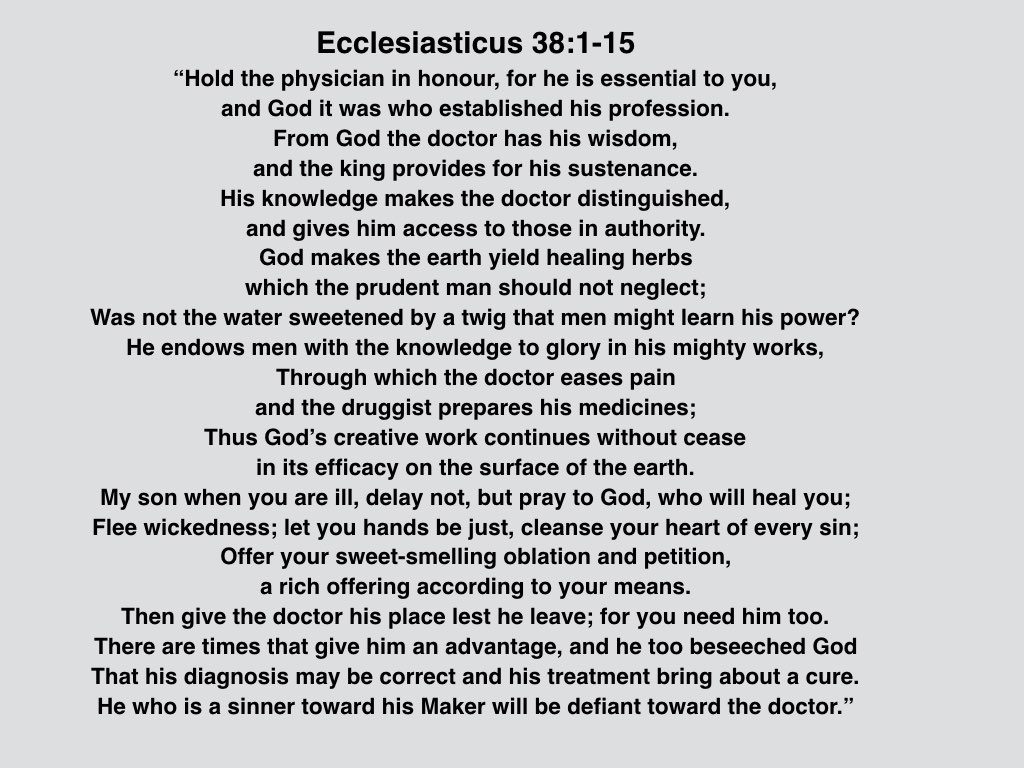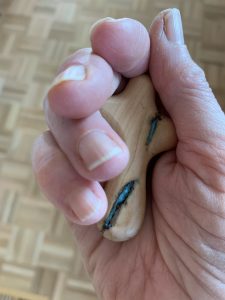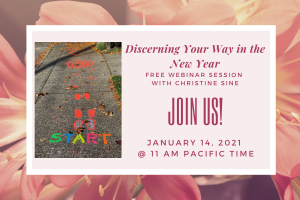by Christine Sine
Today’s post is adapted from one that I have posted several times before. However, as we enter this second year of COVID with fears about the possibilities of more lockdowns and restrictions conflicting with our desire to get rid of masks and start gathering together, I know that many of us are wondering, “Does God Will Healing?” The rising death toll, and the devastation to the lives of so many of our loved ones has left us wondering if God cares.
I believe that God’s ultimate desire is the health and wholeness not just of all persons, but of all creation as well. So, as we begin a new Godspace theme: Time to Heal, I think the place to start is with reminding ourselves of God’s will for healing. And it is not just COVID that makes us struggle with God’s desire for healing – it is the friends we know with cancer, those that struggle with chronic illnesses and those with mental illnesses. Then as we look at the broader world, we realize the need for healing in relationships, in racial injustices, in environmental pollution. So, let us remind ourselves today of God’s will for healing for all of creation.
—————————————————————————————————————————
God Does Care
From the time the children of Israel came out of Egypt, God showed concern for their physical as well as their spiritual well-being. However, God’s prescription for health was always very different from that of the surrounding cultures. During Moses life, the Papyrus Ebers written about 1552 B.C. provided many of the standard treatments for disease. Drugs included “lizards’ blood, swines’ teeth, putrid meat, stinking fat, moisture from pigs ears, goose grease, asses’ hoofs, excreta from animals, including human beings, donkeys, antelopes, dogs, cats and even flies.”
Not quite our idea of good medicine and not God’s either.
However, God’s prescription for good health doesn’t necessarily look like a physician’s prescription either. Pills and surgery are not always at the top of the list. And as with so much of what God does, good health doesn’t usually come with the waving of a magic wand and miraculous healings; it begins with simple preventative measures.
God Believes in Preventative Measures
It was the Levites, the religious leaders of the community, to whom God gave the principles for health and hygiene. They were responsible for both the physical and spiritual health of the community. Physical cleanliness was for the priests a symbol of spiritual cleanliness. One depended on the other and both were performed by those people whose lives were set aside to serve God. God gave them detailed instructions for basic cleanliness and sanitation that, if followed today, would greatly increase the level of hygiene in many a struggling nation. It would be hard for us to imagine our church workers as garbage disposal experts or as sanitation workers, yet for the Levites, this all came under their jurisdiction.
God’s health laws encourage us to think responsibly about what we eat, how we act and how we treat the environment around us. Many of the laws of Leviticus are good preventative health directives that we still use today. These regulations include nutrition, environmental laws and behaviour – the three primary factors that influence the health of any individual or community. Others are guidelines for how the most vulnerable in society are to be cared for. We shouldn’t over eat, abuse our bodies with drugs and alcohol or pollute the environment and blame God for the consequences to our health.
Practice:
Grab one of your masks. Examine the simplicity of it – 3 layers of cloth to protect you and your loved ones from a deadly disease. Put it on. Take some deep breaths in and out though the cloth and thank God for the protection it provides.
Now go and wash your hands with soap and warm water. Wipe down your counters with water and bleach. Thank God for these simple preventative health measures, that slow the spread of COVID and other contagious diseases.
In what ways could you encourage the use of preventative measures in your community to help curtail the spread of COVID?
God Made Us To Be Healthy
Nothing speaks more highly of God’s desire for healing than the incredible systems of protection and repair within our own bodies. The immune system cures most of the illnesses that attack us. Wounds heal, bones knit together and tissue repairs itself in miraculous ways we rarely think about unless something goes wrong. Fascinatingly, this system is enhanced by bacteria in our gut and in our environments. In Let Them Eat Dirt: Saving Your Child From an Oversanitized World, Brett Finlay and Marie-Claire Arrieta, document how microbes improve our health and that of our children. It is fascinating. At best, doctors and nurses assist God’s healing work yet we rarely thank God for the miracle of how we are created.
Practice:
When was the last time you hurt yourself so that you bled from the wound? If it was only a few days ago, the wound might have a scab over it. If it was longer, it might just have left a scar. Examine that healed wound. Run your hand over the scar. Imagine what it would be like if God had not designed our tissues so that they repaired themselves. Thank God for the incredible healing properties of your body.
Consider The Healing Properties of Plants
Unfortunately, these systems don’t always work but God provided other elements to assist the healing process. Most modern medicines originate from medicinal plants and herbs that are a part of God’s wonderful creation.
What salves or drinks or medicines do you have around the house that you know are made from plants? I think of aspirin which comes from the willow bark and of digoxin, still a major heart medication which comes from foxgloves or aloe which helps to sooth our hands when we use lots of hand sanitizer and our lips when they get dry. If you are a keen gardener like I am, the names of plants in your garden that assist healing might come to mind. Or, you might enjoy a cup of herbal tea for its relaxing and healing properties. Here, too, we can thank God for the wonders of healing in our world.
Practice:
Look in your medicine cabinet. Pull out the medications and ointments that you know are made from plants. Walk around your house and garden. What can you identify that has healing properties derived from plants? Now, if you can, make yourself a cup of herbal tea, sit down and hold it closely in your hands. Thank God for the healing properties of plants.
Physical and Spiritual Healing Linked
Interestingly, the Greek word most commonly translated save in the New Testament SOZO can also be translated heal. It means to heal, preserve, save, make whole. Central to God’s model of health and wholeness is reconciliation to God. Healing depended not only on the taking of medicine but primarily on obedience to God’s word and commandments. Healing from a Christian perspective is the process of moving towards wholeness in body, soul and spirit not just as individuals, but as a worldwide community. The purpose of medicine is to support and encourage human wholeness in every respect but it should be used in conjunction with other health measures.
For early followers of Christ, spiritual and physical health were linked as one ministry too. In the early Judeo-Christian church, healing was considered part of the religious function of the community. Monetary compensation was forbidden. In contrast, the Graeco-Roman tradition professionalized medicine and saw it as a vocation to be monetarily compensated – the model that we now embrace.
The rapid growth of the early church was probably a result of its power to heal, to cast out demons and to create communities of mutual care. Interestingly, this was closely linked to an acceptance of suffering as an identification with the sufferings of Christ and an understanding of physical illness as part of a larger paradigm in which God’s grace works through human weakness. Throughout most of Christian history, the church provided centers for healing and cared for the sick and the suffering. In the Middle Ages, the monasteries were centers of healing. They were often famous for their herb gardens which provided a broad range of medicinal substances that were produced for use within the monastic community as well as in the outside secular community.
In this framework, the medical attendant was seen as a servant to the poor and the sick, someone who came to relieve their pain, to heal their hurts and to comfort their concerns. Spiritual and physical health and healing walked hand in hand, separate parts of a whole person.
Practice:
Read through this wonderful quote from Ecclesiasticus, one of the books in the Appocrypha; those books between the Old and New Testament that are considered by some to be a part of the Biblical text. Read through the verses slowly. What stands out for you? Think of doctors and nurses who have treated you, your loved ones and all who are ill or who have calmed your anxieties during this stressful season. Offer a prayer of gratitude for their dedication and expertise.

New Testament Symbols of Healing
The Cross is probably the most powerful symbol of, and power for, healing in the world. Its redeeming and transforming power brings healing to body soul and spirit – and beyond that, it brings healing to communities, and eventually will bring healing to our entire broken world.
The taking of communion is another powerful symbol of healing. In many churches, healing services are Eucharistic, deliberately linking our need for healing to confession, repentance and forgiveness (1 Cor 11:27-34). Baptism, too, because it infuses a person with new life, the life of Christ, and can drive out before it all the powers of sickness and death (Rom 6: 1-14).
James 5:13-16 lists other important symbols of healing we need to pay attention to. Praying for the sick, often associated with laying on of hands, anointing with oil, singing psalms and hymns, confession and forgiveness are all practices that can encourage the healing process.
Observing the liturgical calendar is another way that God’s people can find God’s healing. “By connecting to the seasons of the church year, we enter into a rhythm that focuses every day and every season very intentionally on the One who gives all of life meaning and purpose.” (Godspace:Time for Peace in the Rhythms of Life,159). “By celebrating through the structures of the Church we actually are given the forms we need to become whole and we are given the formulas to make whole every human experience.” (Gertrud Mueller Nelson from To Dance with God: Family Ritual and Community Celebration).

hand cross
Practice:
Do you have a small cross that you could hold in your hand this week as a reminder of God’s redemptive power and its ability to bring healing to body, soul and spirit? Or is there another item that brings you awareness of God’s healing power that you could keep close to you this week.
God wills healing and has written the power of healing and wholeness into our bodies, our spirits and our world. Thank God for the wholeness that will one day come to the entire creation.

